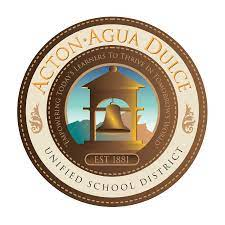Digging Deeper into Assessments
Learning Activity
Districts often have assessments created to determine the effectiveness of district programs. Schools may also have localized assessments to determine that programs they have implemented for their populations are assisting targeted audiences. Many district and school standardized assessments are given in the form of interim/benchmark assessments.
Interim/Benchmark Assessments
An interim assessment is a form of assessment that educators use to (1) evaluate where students are in their learning progress and (2) determine whether they are on track to performing well on future assessments, such as standardized tests or end-of-course exams. Interim assessments are usually administered periodically during a course or school year (for example, every six or eight weeks) and separately from the process of instructing students. (In education, the term "assessment" refers to the wide variety of methods that educators use to evaluate, measure, and document the academic readiness, learning progress, and skill acquisition of students.)
Defining interim assessment is complicated by the fact that educators use a variety of terms for these forms of assessment—such as benchmark assessment or predictive assessment—and the terms may or may not be used synonymously. It should also be noted that there is often confusion and debate about the distinctions between formative assessments and interim assessments, and educators may define the terms differently from school to school or state to state.
Generally speaking, interim assessments fall between formative assessment and summative assessment, and understanding their intended purpose requires an understanding of the basic distinctions between these two assessment strategies. "Interim Assessment Definition." The Glossary of Education Reform. N.p., 25 July 2013. Web. 28 Jan. 2015.
Interim Benchmarks are designed to do the following:
• Measure student achievement and growth over time.
• Identify learning patterns in student subgroups.
• Provide information to develop interventions and enrichments.
• Determine flexible groupings and track progress toward achievements.
• Evaluate educational impact and predict outcomes for high stakes tests.
• Interim data can provide parents information on student progress.
Assessment Systems
When encountering large school populations and an enormous repository of data, assessment systems provide an opportunity to efficiently analyze and aggregate information to make informed decisions. This leads to developing assessment questions and then standardizing these questions. These assessments can then be administered online or through paper. The results are analyzed to build reports for your stakeholders. Lastly, data can be aggregated longitudinally over a student's academic career. Assessment systems have improved vastly from separate silos to integration with student information systems, locally and statewide.
Assessment Systems can include:
• Assessment/Item Banks
• Reports
• Data Analytics
• Automatic Evaluation
• Printed Answer Sheets
• Computer Adaptive
• Web-based Access
• Integrated Parent Access
• Data Visualizations
For this activity, you will need to review the resources and provide answers to the questions.
Resources
Interim/Benchmark Assessments
More Assessment Activities
Quickly deploy Assessment lessons to your entire district.
Top districts trust Alludo to train teachers and staff





